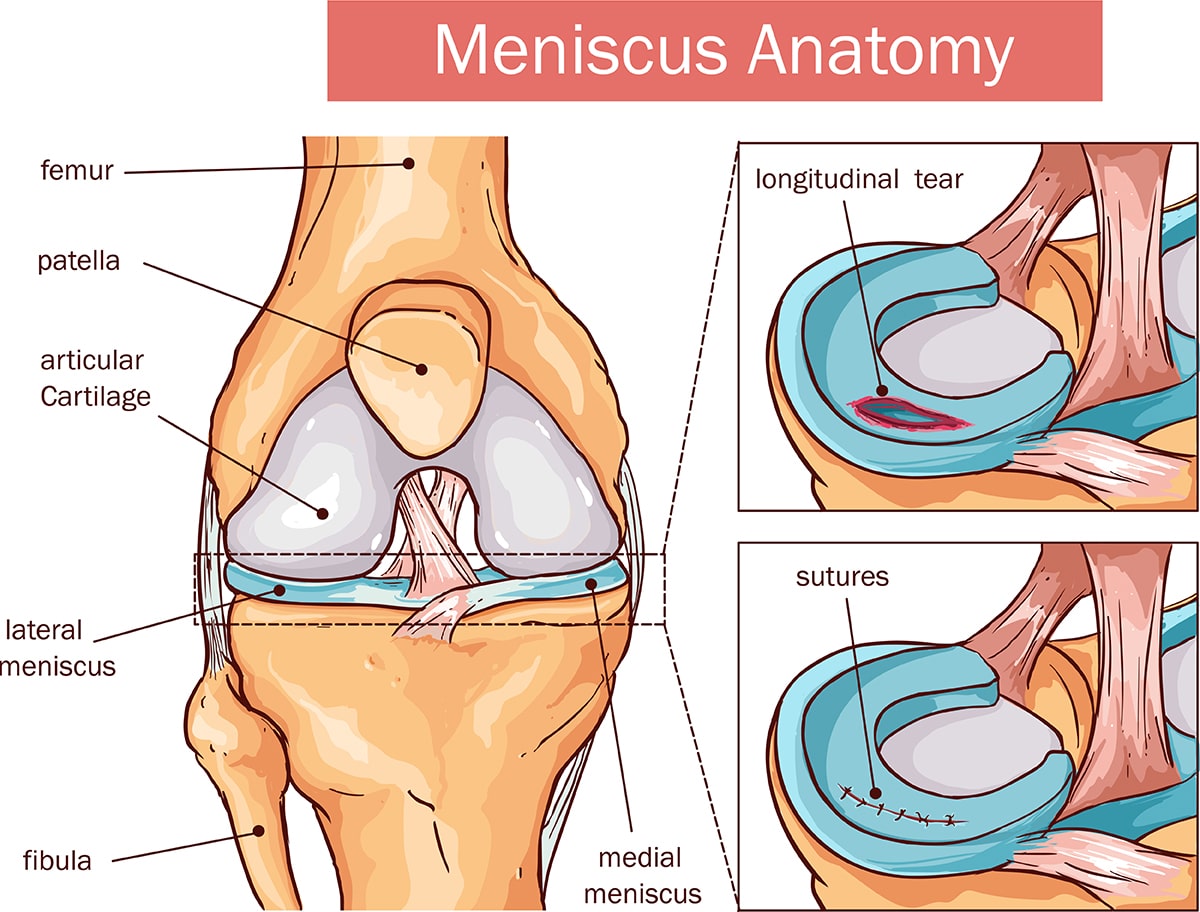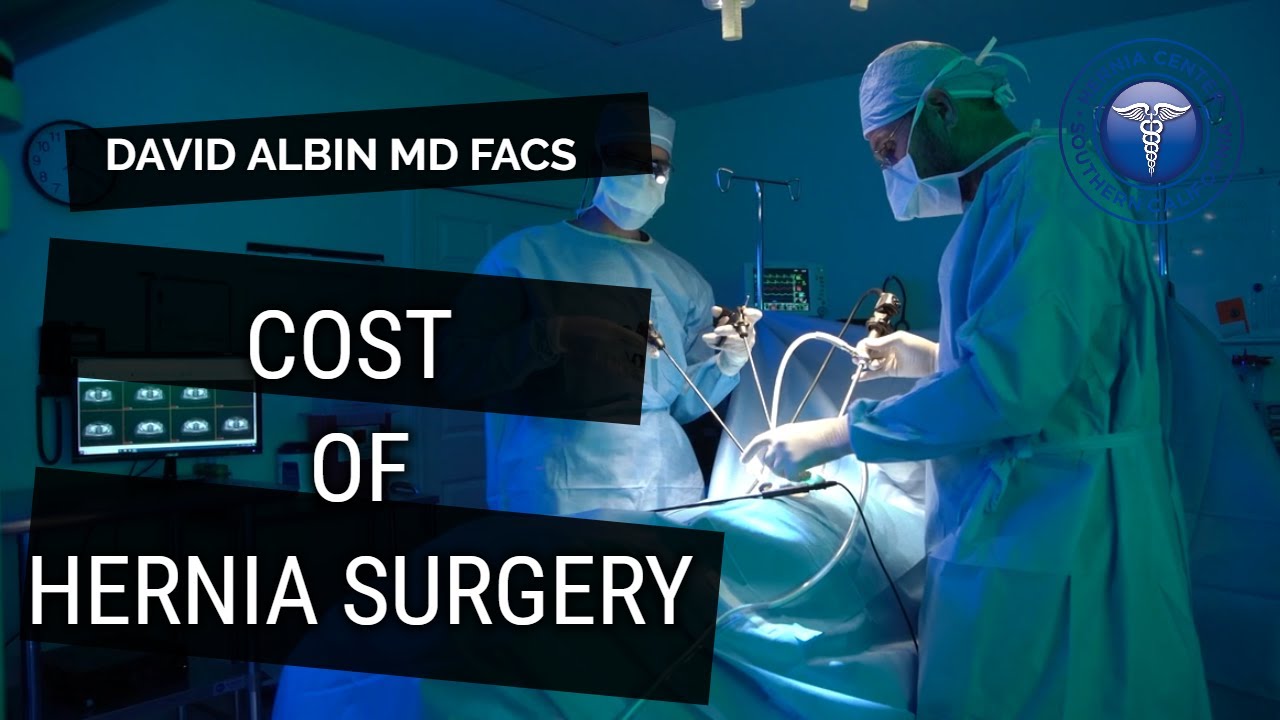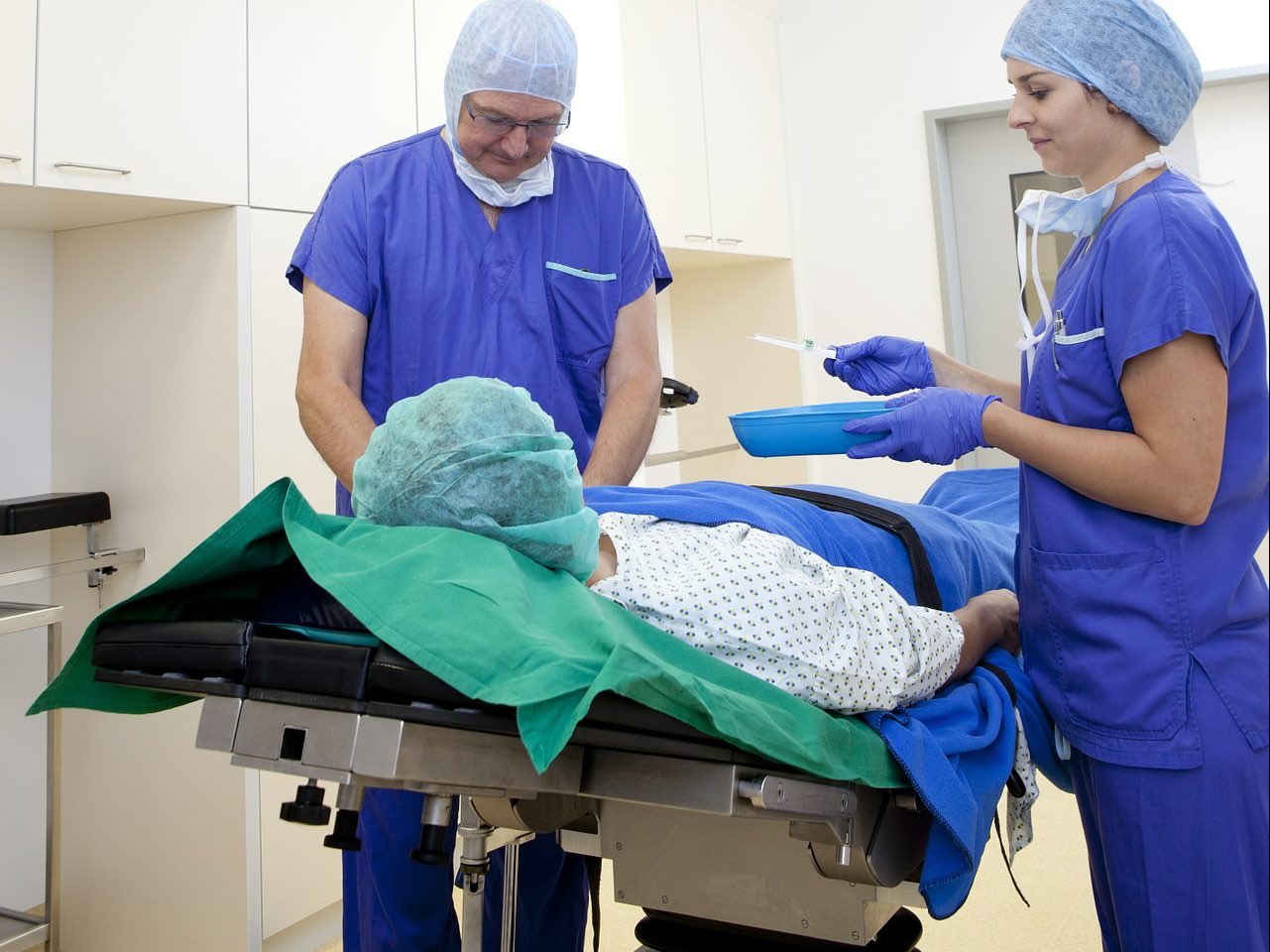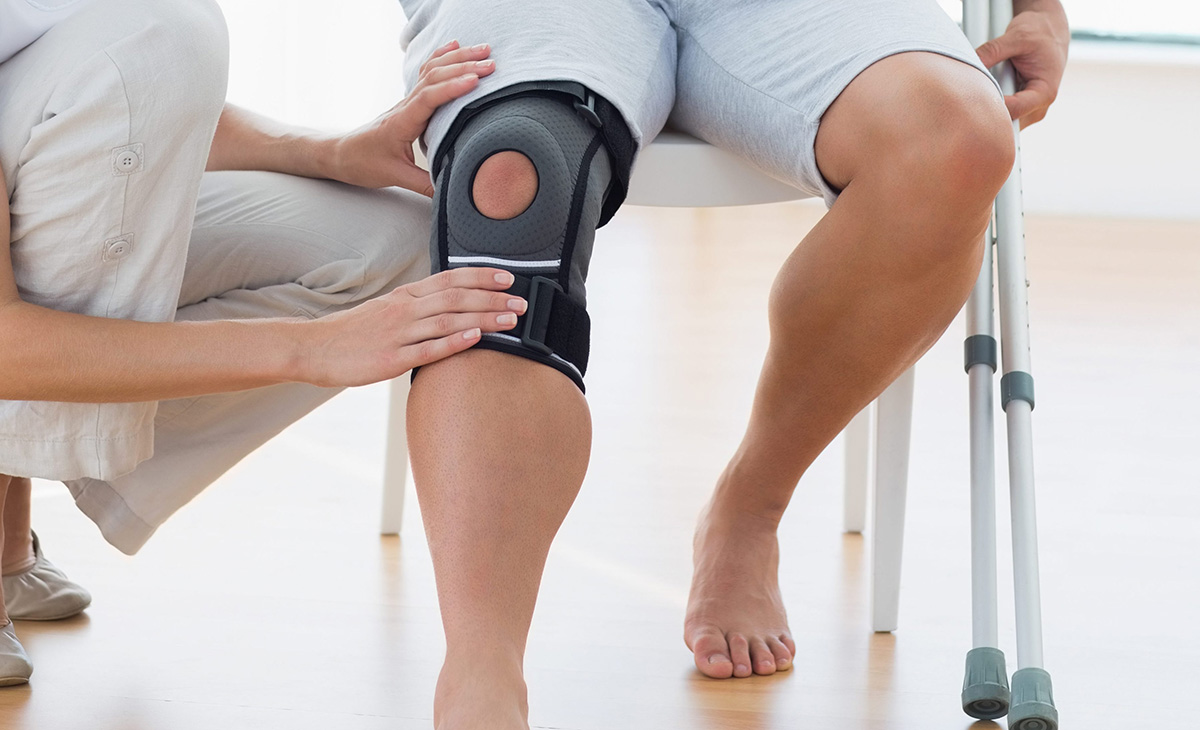

Finance
How Much Is An ACL Surgery Without Insurance
Modified: December 29, 2023
Learn about the cost of ACL surgery without insurance and explore financing options to help cover the expenses. Navigate the financial aspect of undergoing this procedure and make an informed decision.
(Many of the links in this article redirect to a specific reviewed product. Your purchase of these products through affiliate links helps to generate commission for LiveWell, at no extra cost. Learn more)
Table of Contents
Introduction
ACL (anterior cruciate ligament) injuries are common occurrences, particularly among athletes engaged in high-impact sports such as football, basketball, and skiing. The ACL is one of the major ligaments in the knee and is responsible for providing stability and support during movement.
Suffering an ACL injury can be a devastating experience, as it often requires surgical intervention to restore functionality and prevent long-term damage. However, the cost of ACL surgery can be a significant concern for many individuals, especially those without insurance coverage.
In this article, we will explore the factors influencing the cost of ACL surgery without insurance, as well as alternative financing options and avenues to seek reduced-cost or free ACL surgery. Understanding these options can help individuals make informed decisions about their healthcare and potentially alleviate financial burden.
It is important to note that while this article provides general information, it is always recommended to consult with medical professionals and insurance providers to obtain accurate and personalized information regarding your specific situation.
Understanding ACL Injuries
An ACL injury is a tear or sprain of the anterior cruciate ligament, which is one of the four main ligaments that stabilize the knee joint. This type of injury often occurs during activities that involve sudden stops, changes in direction, or direct impact to the knee, such as pivoting, jumping, or landing awkwardly.
ACL injuries are quite common, especially among athletes participating in high-intensity sports. However, they can also occur in non-athletic settings due to accidents or falls. Symptoms of an ACL injury include immediate pain, swelling, instability, and a popping sound at the time of injury.
When an ACL injury is diagnosed, the severity is typically classified into three grades:
- Grade 1: A mild sprain or stretch of the ligament with minimal or no joint instability.
- Grade 2: A partial tear of the ligament, resulting in some joint instability.
- Grade 3: A complete tear of the ligament, leading to significant joint instability.
In cases where the ACL is completely torn, surgery is often recommended to restore knee stability and prevent further damage.
It is crucial to seek medical attention promptly if you suspect an ACL injury, as early intervention can help with a more accurate diagnosis and prevent additional complications. After a thorough examination, your healthcare provider may order imaging tests, such as an MRI, to confirm the extent of the injury.
Once your ACL injury has been properly diagnosed, it is essential to discuss treatment options with your healthcare team. In some cases, conservative approaches like physical therapy and rehabilitation exercises may be sufficient to restore function and manage pain. However, if the injury is severe or if there is a desire to return to high-impact activities, ACL surgery may be necessary.
The Cost of ACL Surgery
ACL surgery is a complex procedure that requires skilled surgeons, advanced medical equipment, and post-operative care. As a result, the cost of ACL surgery can vary significantly based on several factors.
The primary components contributing to the cost of ACL surgery include:
- Surgeon’s fees: The surgeon’s experience, expertise, and reputation can influence their fees. Surgeons with a higher level of recognition and success rates may charge higher fees.
- Hospital or surgical facility fees: The cost of using the operating room, equipment, and staff during the surgery can vary based on location and facility reputation.
- Anesthesia fees: The cost of administering anesthesia during the surgery can vary based on the type of anesthesia used and the duration of the procedure.
- Diagnostic tests: Prior to ACL surgery, imaging tests like MRI and X-rays are often required to assess the severity of the injury. These tests can incur additional costs.
- Post-operative care: Following ACL surgery, patients will require physical therapy, rehabilitation exercises, and check-up appointments. The frequency and duration of these sessions can affect the overall cost.
It is essential to consider that the cost of ACL surgery can vary significantly depending on the geographical location and the healthcare provider you choose. For example, the cost may be higher in large metropolitan areas where overhead expenses are typically higher. Additionally, factors such as the type of surgical technique used and whether any additional procedures are required, such as meniscus repair, can also impact the overall cost.
Furthermore, it is important to note that insurance coverage greatly influences the out-of-pocket expenses for ACL surgery. Individuals with comprehensive health insurance plans may have a portion or the entirety of the surgical costs covered, while those without insurance will be responsible for the full amount. However, there are alternative financing options available that can help individuals manage the financial burden of ACL surgery without insurance.
Factors Affecting the Cost of ACL Surgery
The cost of ACL surgery can vary depending on several factors. Understanding these factors can help individuals anticipate the potential expenses associated with the procedure. Here are some key elements that can influence the cost of ACL surgery:
- Geographic Location: The cost of medical services often varies from one region to another. In areas with higher costs of living and healthcare, the cost of ACL surgery is generally higher as well.
- Type of Facility: ACL surgeries can be performed in various settings, including hospitals, ambulatory surgery centers, or specialized orthopedic clinics. The cost may differ based on the facility type, with hospitals typically charging more due to additional overhead costs.
- Surgeon’s Experience and Reputation: Surgeons with extensive experience and a reputation for successful outcomes may charge higher fees. While it may be tempting to opt for a lower-cost surgeon, it is crucial to prioritize skill and expertise to ensure optimal results.
- Anesthesia: The type of anesthesia used during ACL surgery can affect the cost. General anesthesia, administered by an anesthesiologist, is typically more expensive than local or regional anesthesia.
- Additional Procedures: In some cases, additional procedures may be necessary during ACL surgery, such as meniscus repairs or other ligament reconstructions. These additional procedures can increase the overall cost of the surgery.
- Imaging and Diagnostic Tests: Diagnostic tests, such as X-rays and MRI scans, are often conducted before ACL surgery to assess the extent of the injury. The cost of these tests can vary depending on the imaging facility and location.
- Rehabilitation and Post-Operative Care: The recovery process after ACL surgery typically involves physical therapy sessions, follow-up appointments, and necessary supportive devices like crutches or braces. The cost of these post-operative care elements should be considered when estimating the total expenses.
It is important to note that the costs outlined above are general considerations and can vary significantly depending on individual circumstances. Consulting with your healthcare provider and obtaining detailed cost estimates from different providers can help you make an informed decision regarding your ACL surgery and associated expenses.
Average Price of ACL Surgery Without Insurance
When undergoing ACL surgery without insurance coverage, individuals can expect to bear the full cost of the procedure. The price of ACL surgery can vary based on geographical location, healthcare provider, and specific circumstances, resulting in a wide range of potential costs.
On average, the cost of ACL surgery without insurance can range from $20,000 to $50,000 or more. This includes surgeon fees, hospital or surgical facility fees, anesthesia fees, diagnostic tests, post-operative care, and any additional procedures that may be required.
It is crucial to note that the cost estimates mentioned above are general figures and can significantly vary. Geographical factors play a significant role in the difference in costs. For instance, ACL surgery in metropolitan areas with higher living costs and medical expenses tends to be more expensive compared to rural areas.
Additionally, the specific details of the surgery, such as the surgeon’s experience, the type of facility utilized, and the need for any supplementary procedures, can further impact the final price.
It is important to keep in mind that without insurance, individuals are responsible for negotiating payment terms directly with the healthcare provider. It is advisable to speak with the hospital or surgical facility’s billing department to discuss potential financial options, including installment plans or discounts for self-pay patients.
It is worth mentioning that some healthcare providers offer bundled or package prices for ACL surgery that cover all associated costs. These packages can provide a more comprehensive estimation of the total expense and may offer some savings compared to individually billed components.
While the cost of ACL surgery without insurance can be significant, there are alternatives and resources available to help manage the financial burden. It is essential to explore various financing options and consider seeking reduced-cost or free ACL surgery through specialized programs or medical charity organizations, which we will discuss further in the following sections.
Financing Options for ACL Surgery
For individuals without insurance coverage, the cost of ACL surgery can be a considerable financial burden. However, there are various financing options available to help manage the expenses associated with the procedure. Here are some options to consider:
- Payment Plans: Many hospitals and surgical facilities offer payment plans that allow individuals to spread out the cost of ACL surgery over a specified period. These plans often come with low or zero interest rates, making it more manageable to pay off the expenses over time.
- Medical Credit Cards: Some credit card companies offer medical credit cards specifically designed for healthcare expenses. These cards often come with promotional offers such as zero interest or low-interest financing for a certain period. It is important to review the terms and conditions carefully and assess the interest rates once the promotional period ends.
- Personal Loans: Obtaining a personal loan from a bank, credit union, or online lender is another option to finance ACL surgery. Personal loans usually come with fixed interest rates and set repayment terms. It is recommended to compare rates and terms from different lenders and choose the option that best suits your financial situation.
- Crowdfunding: Online crowdfunding platforms can be utilized to raise funds for ACL surgery. Individuals can create a personalized campaign explaining their situation and share it with friends, family, and the wider online community. Contributions from supporters can help offset the financial burden of the surgery.
- Health Savings Account (HSA) or Flexible Spending Account (FSA): If you have an HSA or FSA through your employer, you can use the funds in these accounts to cover eligible medical expenses, including ACL surgery. Contributing to these accounts through pre-tax deductions can provide potential tax savings as well.
- Charitable Organizations: There are charitable organizations and foundations that provide financial assistance to individuals in need of medical procedures. Research and reach out to these organizations to inquire about any potential grants or financial aid available for ACL surgery.
It is important to thoroughly research and carefully consider the financing options available to you. Assess the terms, interest rates, and repayment plans to ensure that it aligns with your financial capabilities and goals. Prioritize your financial well-being while making decisions regarding financing your ACL surgery.
Seeking Reduced Cost or Free ACL Surgery
For individuals without insurance coverage and facing financial constraints, there are avenues to explore for reduced-cost or even free ACL surgery. Here are some options to consider:
- Medical Assistance Programs: Some hospitals and healthcare facilities offer medical assistance programs for individuals who are unable to afford the full cost of surgery. These programs are often based on financial need and can provide reduced-cost or discounted services. It is advisable to reach out to the billing or financial assistance department of the hospital to inquire about any available programs.
- Research and Clinical Trials: Participating in research studies or clinical trials focused on ACL surgery may provide an opportunity to receive the procedure free of charge or at a reduced cost. These studies are often conducted by reputable medical institutions and can help advance medical knowledge while offering potential benefits to participants.
- Orthopedic Residency Programs: Teaching hospitals and academic medical centers with orthopedic residency programs may offer reduced-cost or free ACL surgery performed by resident surgeons under the supervision of experienced professionals. While the procedure is performed by residents, rest assured that they are supervised by highly qualified attending surgeons.
- Medical Charities and Non-Profit Organizations: Various charitable organizations and non-profit groups provide financial assistance and grants for individuals in need of medical procedures. These organizations may have specific eligibility criteria, so it is important to thoroughly research and apply to those that align with your circumstances.
- Local and State Programs: Some local or state governments have programs in place to assist low-income individuals with healthcare expenses. These programs may offer financial support or direct referrals to medical facilities providing reduced-cost or charity care.
- Social Services and Community Organizations: Social services agencies and community organizations often have resources and information on available assistance programs for medical procedures. They can provide guidance and connect you with local resources that offer reduced-cost or pro bono ACL surgery options.
It is important to be proactive in seeking reduced-cost or free ACL surgery. Start researching and exploring these options as early as possible, as some programs may have limited availability or specific application periods. Keep in mind that each program or organization may have its own application process, eligibility criteria, and waiting periods.
Patience and persistence are key when seeking reduced-cost or free ACL surgery. Advocate for yourself and reach out to different sources for assistance. Remember, there are resources available to help individuals access the necessary medical care, even without insurance coverage.
Conclusion
ACL surgery is a significant medical intervention that can be financially daunting for individuals without insurance coverage. However, by understanding the factors influencing the cost of ACL surgery, exploring various financing options, and seeking reduced-cost or free alternatives, individuals can navigate the financial challenges associated with the procedure.
It is important to thoroughly research and compare prices from different healthcare providers, considering factors such as geographic location, surgeon’s fees, facility costs, and post-operative care expenses. Discussing payment plans, utilizing medical credit cards, personal loans, and exploring crowdfunding options can help manage the financial burden of ACL surgery.
Furthermore, seeking reduced-cost or free ACL surgery through medical assistance programs, research studies, orthopedic residency programs, charitable organizations, and local/state programs may provide alternative avenues for individuals in need of financial assistance.
While the cost of ACL surgery without insurance can be significant, it is important to prioritize your well-being and make informed decisions. Remember to consult with medical professionals and engage with financial advisors to understand the options available to you and ensure that your financial plan aligns with your long-term goals.
By taking an active role in exploring financing options and seeking assistance, individuals can alleviate the financial burden and focus on their recovery and regaining functionality after ACL surgery.
Disclaimer: The information provided in this article is for general informational purposes only and should not be considered as medical or financial advice. It is always recommended to consult with healthcare professionals and financial advisors for personalized advice regarding your specific situation.














